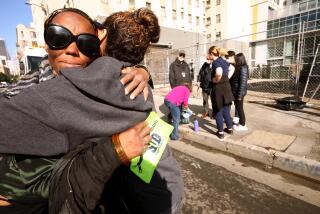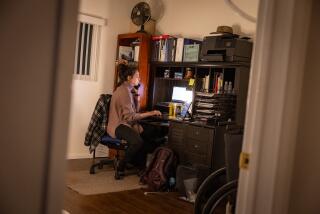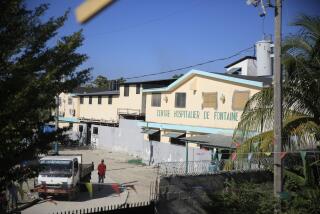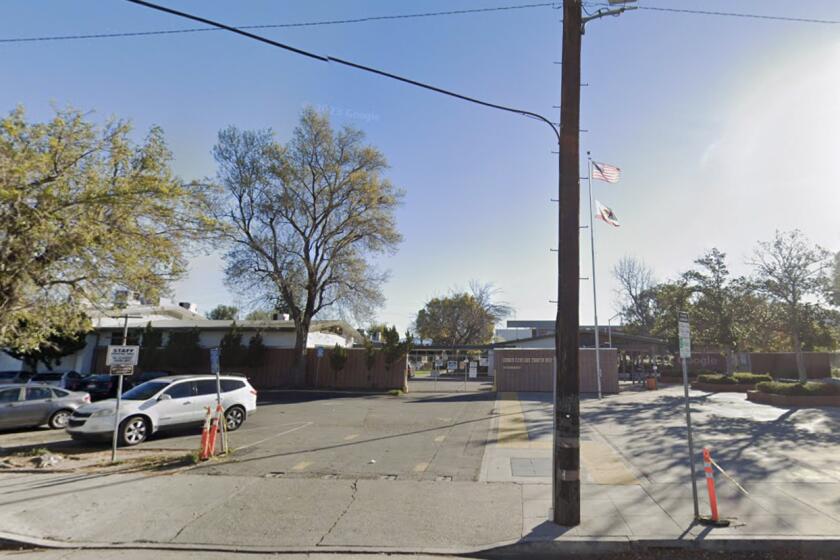Treating the sick without bias
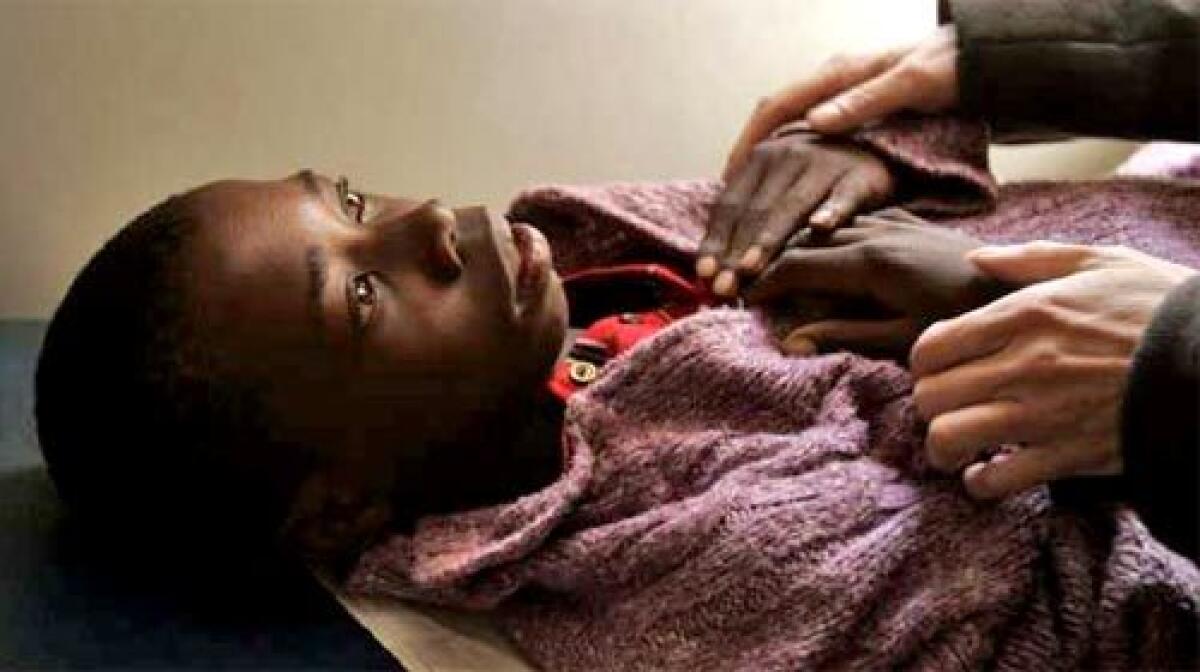
Teboho mahate was shivering. He had trouble keeping his balance. He couldn’t talk, and he had bitten his tongue.
A seizure.
“Any pain anywhere?” asked Dr. Jennifer Furin.
Teboho, 14, held his head.
Furin looked into his eyes, checking for dilated pupils. She turned him on his side and, in English along with a few words in this nation’s native Sesotho, told him to lie in a fetal position. He barely quivered as she slipped in a needle for a spinal tap.
The diagnosis: life-threatening meningitis. In time and with medicine, Teboho recovered. But his healthcare did not stop. Furin also tested him for AIDS. He was lucky: The test showed that he was HIV-negative.
Teboho had come to a clinic run by Partners in Health, a nongovernmental aid organization that rejects narrowly targeted approaches to Africa’s AIDS crisis.
The group partners with governments in Africa, Haiti, South America and Russia to improve public-sector healthcare. It uses grants far smaller than the billions of dollars that foundations give to fight malaria or AIDS, and it treats patients broadly for whatever problems they have. It also links medical services to food, work and self-reliance for the poor.
Partners in Health, or PIH, founded by renowned physician Paul Farmer two decades ago in Haiti, regards the approach as both common-sense and a Hippocratic responsibility.
“Diseases are all intermingled,” Furin said. “I could just focus on HIV, but we’re the only physicians around for a nine-hour walk.”
Hiring the poor
PIH trains accompagnateurs, or lay health guides, who encourage people to seek medical treatment and who make sure AIDS patients take their pills.
Boston University recently found that nearly 40% of AIDS patients in 13 African nations stopped taking medication or died within two years of testing. Since PIH began improving hospitals and clinics in Rwanda in 2005, fewer than 1% of its patients have stopped taking medicine, and fewer than 4% have died, according to data from PIH and the Rwanda government.
Accompagnateurs look for all health problems and signal the need for follow-ups by doctors, nurses and social workers. If a baby has a temperature, the accompagnateur arranges to have the child examined to see whether antibiotics are needed.
PIH pays accompagnateurs $25 a month in Rwanda, a little more than the average per capita income. It is training other lay workers to do more-advanced interventions -- including home visits to get to know mothers, bring them in for HIV testing and prenatal care and make sure they give birth at a clinic. These workers also monitor tuberculosis and vaccinations.
“For the cost of one or two highly paid global health consultants, we will end up employing nearly 1,000 people whose salaries will be spent in the community,” said Dr. Michael Rich, who heads PIH operations in Rwanda.
PIH feeds patients at its free hospital in Rwinkwavu, a village in desperately poor eastern Rwanda, three meals a day, unavailable at other hospitals. It offers family helpers one meal a day. After patients leave the hospital, PIH provides food for as long as 10 months.
It does not stop there. PIH built 55 houses last year and improved more than 300 for destitute TB and AIDS patients and for victims of Rwanda’s 1994 genocide. Thousands of students were helped with uniforms, supplies or school fees. Where millions live in poverty, these are token efforts, but they send a message: Shelter and education are as crucial to health -- and as much a right -- as AIDS medicine.
Government concerns
The Rwandan government worries that PIH fosters dependency. “Everything for free -- we don’t believe it is sustainable,” said Dr. Agnes Binagwaho, a top health official who is nonetheless one of PIH’s strongest allies.
So PIH has helped patients form HIV associations, provided training in intensive farming methods and offered small loans to more than 6,000 farmers. The associations must repay the loans within 12 months.
Other associations make handicrafts, operate a hair salon, raise goats and drive motorcycle taxis. They also provide health education and social support.
Since the program began 18 months ago, six associations have repaid their loans and turned a profit.
In 2007, PIH projects in Rwanda got only $300,000 to $400,000 from the Global Fund, a major grantee of the Bill & Melinda Gates Foundation. PIH receives about $3.5 million for its Rwanda operations from the William J. Clinton Foundation, operated by the former president, and about $3 million from the Rwandan government.
It costs PIH about $23 per person annually to provide comprehensive care to 450,000 people in eastern Rwanda -- less than half of healthcare spending in Lesotho, less than 10% of spending in Botswana and less than 1% of what is spent per capita in the United States.
Rwanda has pushed other aid agencies, such as the Global Fund, to support full health systems -- not just programs to fight AIDS -- with some success. “People are starting to understand,” said Dr. Innocent Nyaruhirira, minister of state for HIV/AIDS.
The Gates Foundation has paid to build a training center under construction in Rwinkwavu.
Nyaruhirira said he hoped the foundation would give more to the government’s partnership with PIH. But the Gates Foundation doesn’t give directly to ongoing treatment, said Dr. Tadataka Yamada, who directs its global health efforts. Instead, it supports large health financing agencies, such as the Global Fund, and health research.
In 2000, the Gates Foundation funded an experimental PIH project in Peru that cured poor patients with multi-drug-resistant TB. That project has been replicated in Lesotho and elsewhere.
Rwanda and the Clinton Foundation say they will finance a major expansion of the PIH model in 2008. “We need more ambitious plans,” said Rich, the head of PIH operations in Rwanda -- plans “as ambitious as fighting the Iraq war.”
Not that PIH hasn’t been successful, especially at the clinic that treated Teboho Mahate in Ha Nohana.
“We already [have] put the local coffin maker out of business,” Furin said.
More to Read
Start your day right
Sign up for Essential California for news, features and recommendations from the L.A. Times and beyond in your inbox six days a week.
You may occasionally receive promotional content from the Los Angeles Times.
